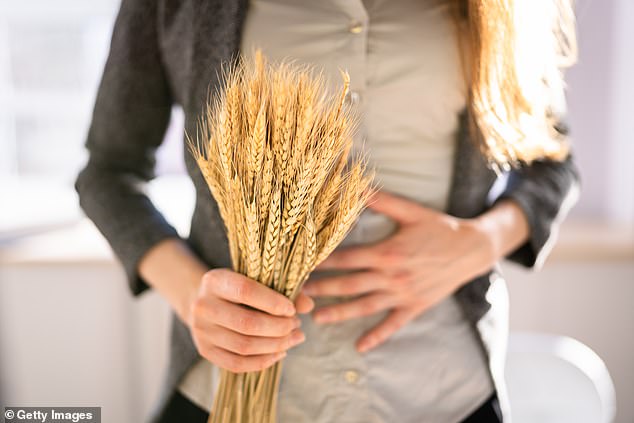Should I stop eating gluten?
These days it seems almost impossible to walk into a cafe without encountering a gluten-free cake or customer, with only one percent of Britons suffering from coeliac disease.
How do you know if your body actually has a problem with gluten? And if so, whether it is an allergy, an autoimmune disease or simply an intolerance?
Here are a few things to look out for:
Gluten is a protein found in wheat, barley, and rye. It acts as the glue that holds food together
What is gluten?
Gluten is a protein found in wheat, barley, and rye. It acts as the glue that holds food together and is present in foods and beverages such as pasta, bread, cereals, and beer.
Am I gluten intolerant?
An intolerance is when your body has trouble digesting certain foods. It is different from an allergy (which causes the immune system to overreact).
Gluten intolerance can cause diarrhea, bloating and stomach pain.
The problem is that these symptoms can also be caused by celiac disease. Celiac disease is not an allergy or intolerance, but an autoimmune disease that causes damage to the lining of the small intestine.

Gluten intolerance can cause diarrhea, bloating and stomach pain
How do I get a diagnosis?
There are no approved tests for gluten intolerance. Instead, it is diagnosed by elimination.
Hannah Whittaker, allergy dietitian and spokesperson for the British Dietetic Association (bda.uk.com), says you should contact your doctor to be tested for celiac disease. ‘Screening involves blood tests to detect specific antibodies.
“If tests show celiac disease, a biopsy of the small intestine via endoscopy may be recommended to confirm the diagnosis,” she explains. (Celiac disease causes visible damage that does not occur with intolerance.)
If you are diagnosed with intolerance, you will be advised to follow a gluten-free diet. However, unlike celiacs, who are advised to avoid gluten completely, you may be able to tolerate small amounts.

Hannah Whittaker, allergy dietitian and spokesperson for the British Dietetic Association, says you should contact your doctor to get tested for coeliac disease
Is all gluten bad?
“Gluten-free” doesn’t necessarily mean “healthy.” Foods that contain whole wheat, barley, or rye are high in fiber, iron, B vitamins, and calcium. In contrast, virtually all gluten-free bread is heavily processed.
Coeliac UK warns: ‘A gluten-free diet is a major undertaking that can limit choice and variety. If not managed properly, it can lead to nutritional deficiencies.’
If you don’t have coeliac disease or intolerance, but have been avoiding gluten for a long period of time, you may have problems reintroducing it into your diet. Ms Whittaker advises a slow reintroduction and recommends monitoring your symptoms.

Foods containing whole wheat, barley or rye are high in fiber, iron, B vitamins and calcium
